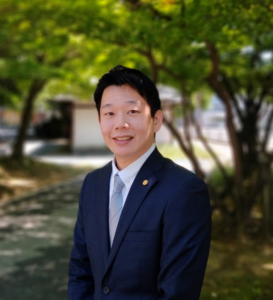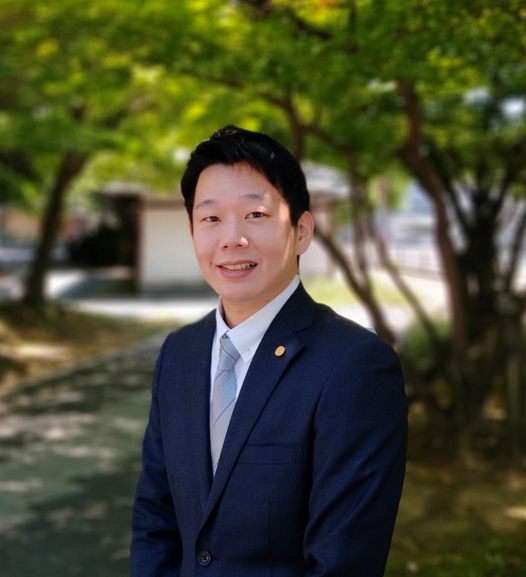Reviewed by: Yuki Ando, Certified Immigration Legal Specialist (Gyoseishoshi)
This article provides a detailed explanation of the legal requirements and immigration procedures related to employing international students in part-time roles. Whether you are considering hiring a student for the first time or looking to understand the proper process, this guide will help you navigate the relevant rules with confidence.
Table of Contents
What Is the “Student” Residence Status?
 The “Student” residence status is granted to foreign nationals who come to Japan to pursue educational activities at institutions such as universities, vocational schools, or Japanese language schools. In principle, individuals holding this status are not permitted to engage in employment. However, they may apply to the Immigration Services Agency for a “Permission to Engage in Activity Other Than That Permitted Under the Status of Residence Previously Granted.” If approved, they are allowed to work part-time within the authorized scope. For more detailed information about residence statuses, please refer to the article linked below.
The “Student” residence status is granted to foreign nationals who come to Japan to pursue educational activities at institutions such as universities, vocational schools, or Japanese language schools. In principle, individuals holding this status are not permitted to engage in employment. However, they may apply to the Immigration Services Agency for a “Permission to Engage in Activity Other Than That Permitted Under the Status of Residence Previously Granted.” If approved, they are allowed to work part-time within the authorized scope. For more detailed information about residence statuses, please refer to the article linked below.
It is worth noting that short-term study programs or activities aimed at learning about Japanese culture outside of formal educational institutions may also be broadly considered forms of study abroad. However, individuals engaged in such activities typically hold different residence statuses, such as “Temporary Visitor” or “Cultural Activities.” In this article, the term “international students” specifically refers to those staying in Japan under the “Student” residence status.
Part-Time Work by International Students Requires Permission for Activities Outside the Scope of Their Visa
 Permission to Engage in Activity Other Than That Permitted Under the Status of Residence Previously Granted—commonly referred to as “permission for activities outside the scope of the visa”—allows foreign nationals to engage in work activities beyond what is permitted under their current visa. For international students, whose “Student” residence status authorizes only activities related to receiving education, this permission enables part-time employment or limited business operations, provided they stay within the approved scope.
Permission to Engage in Activity Other Than That Permitted Under the Status of Residence Previously Granted—commonly referred to as “permission for activities outside the scope of the visa”—allows foreign nationals to engage in work activities beyond what is permitted under their current visa. For international students, whose “Student” residence status authorizes only activities related to receiving education, this permission enables part-time employment or limited business operations, provided they stay within the approved scope.
The main conditions for international students to obtain this permission are as follows:
**Basic Requirements for Permission for International Students:**
1. The employment must not interfere with their academic responsibilities.
2. The student must be actively engaged in educational activities.
3. The activity must not violate any laws or regulations, whether criminal or civil.
4. The work must not involve businesses related to adult entertainment or similar industries.
5. The student must not have been issued a detention order or received a notice of hearing.
6. The student must have good conduct.
Requirement 1 ensures that part-time work does not hinder academic progress. For instance, full-time employment is not allowed because it would shift the primary purpose of the stay from education to labor.
Requirement 2 clarifies that only students currently attending school are eligible. If a student is not attending classes or has withdrawn from school—even if their student visa remains valid—they are not allowed to engage in outside activities. As for working after graduation, students may continue part-time employment only if they retain student status under school regulations for a certain period after completing their studies.
Regarding Requirement 4, prohibited industries include businesses such as hostess clubs, bars with dim lighting (10 lux or less), mahjong parlors, pachinko parlors, nightclubs serving alcohol, adult content distribution services, matchmaking services, and other sex-related businesses. Even if the individual does not directly engage in entertainment or customer interaction, work in these industries is not permitted under this type of authorization.
Comprehensive Permission
Comprehensive permission is a framework that allows international students to engage in part-time work for the purpose of supplementing their tuition and living expenses while studying in Japan. The permission granted to international students for activities outside the scope of their visa generally falls under this comprehensive category. Students who receive this permission are allowed to work up to 28 hours per week, or up to 8 hours per day during officially designated school vacation periods. The validity of the comprehensive permission extends uniformly until the expiration date of the student’s residence status.It is important to note that under comprehensive permission, students may not engage in work that is based on contracts where hours cannot be clearly measured. For example, if compensation is based on results or a subcontracting arrangement that does not allow for objective verification of work hours, the student must obtain separate individual permission.
Individual Permission
Individual permission refers to a system in which activities falling outside the scope of comprehensive permission are reviewed on a case-by-case basis, and approval is granted based on the specific nature of the proposed work. In order for an international student to obtain this type of permission, the student must not only meet the general requirements for permission to engage in activities outside the scope of their visa but also fall under one of the following categories:* The student is enrolled in a university (excluding junior colleges), is expected to complete their program by the end of the academic year, has nearly completed the required credits for graduation, and intends to engage in workplace training as part of their job search.
* The student is enrolled in a graduate school, is expected to complete their program by the end of the academic year, and wishes to gain workplace experience as part of their job search.
* The activity involves work such as language teaching, interpreting, translation, tutoring, or another role closely related to the student’s field of study or a type of part-time job commonly held by students based on societal norms.
* The activity involves preparation for starting a business within Japan.
Understanding the 28-Hour Weekly Limit for Part-Time Work
 International students who have received comprehensive permission for activities outside the scope of their visa are allowed to engage in part-time work for up to 28 hours per week. However, this 28-hour limit must be observed strictly on a rolling weekly basis—meaning that regardless of which day of the week is used as the starting point, the total hours worked within any seven-day period must not exceed 28.
International students who have received comprehensive permission for activities outside the scope of their visa are allowed to engage in part-time work for up to 28 hours per week. However, this 28-hour limit must be observed strictly on a rolling weekly basis—meaning that regardless of which day of the week is used as the starting point, the total hours worked within any seven-day period must not exceed 28.
It is also important to note that exceeding 28 hours in a week that spans the end of one month and the beginning of another is not permitted. Therefore, when employing international students for part-time work, employers must exercise great care in preparing work schedules to ensure compliance.
Up to 40 Hours per Week During Long Academic Breaks
A long academic break refers to periods officially designated in a school’s academic calendar as summer, winter, or spring vacation. During these breaks, international students are permitted to work up to 8 hours per day. However, under no circumstances may they exceed 40 hours of work per week, in accordance with the provisions of the Labor Standards Act.Characteristics of International Students Residing in Japan
 While the term “international student” is often used broadly, individuals within this category differ significantly in terms of their Japanese language proficiency, work experience, and specialized knowledge. Among foreign nationals residing in Japan under the “Student” residence status, the largest groups are those enrolled in Japanese language schools, vocational schools, and universities. The following is an overview of the characteristics of students in each of these educational settings.
While the term “international student” is often used broadly, individuals within this category differ significantly in terms of their Japanese language proficiency, work experience, and specialized knowledge. Among foreign nationals residing in Japan under the “Student” residence status, the largest groups are those enrolled in Japanese language schools, vocational schools, and universities. The following is an overview of the characteristics of students in each of these educational settings.
International Students at Japanese Language Schools
Students who hold a “Student” residence status and are enrolled in Japanese language schools typically possess Japanese language skills equivalent to the N5 level of the Japanese Language Proficiency Test (JLPT) at the time of entry into Japan, which indicates a basic understanding of the language. The standard period of enrollment at a Japanese language school is up to two years, and by graduation, many students reach a proficiency level equivalent to JLPT N2 or N3.Many students at Japanese language schools begin part-time work two to three months after arriving in Japan. Therefore, for businesses experiencing labor shortages in positions that require minimal Japanese proficiency, hiring students at this stage can be a practical solution. However, part-time jobs also serve as a valuable opportunity for these students to improve their Japanese language skills. As a result, many students seek employment in workplaces that offer frequent opportunities for Japanese communication to support their language development.
International Students at Vocational Schools
Many vocational school students have previously completed Japanese language school programs, meaning they typically have a longer history of living in Japan and demonstrate a higher level of Japanese proficiency. Vocational schools focus on practical, career-oriented education, so students often possess specialized knowledge and technical skills in specific fields.For example, international students enrolled in welfare-related vocational programs may work part-time at caregiving facilities, while those in tourism-related programs may find part-time employment at hotels or travel agencies. In both cases, students are able to apply their advanced expertise and language skills in a practical work setting.
International Students at Universities
International students enrolled at universities in Japan are generally required to have Japanese language proficiency equivalent to at least JLPT N2 at the time of admission. Many of these students also have prior experience studying at Japanese language schools for 1.5 to 2 years, during which time they often held part-time jobs.Those who graduate from university and seek employment in Japan frequently change their residence status to “Engineer/Specialist in Humanities/International Services.” For such cases, immigration authorities tend to take a flexible approach in evaluating the relationship between the student’s academic major and the nature of the job. As a result, many university students work part-time in fields that align with this visa category—such as interpreting, translation, language instruction, or IT engineering—while still enrolled in school.
Benefits of Employing International Students
 Part-time employment for international students is subject to relatively few restrictions regarding the types of tasks they may perform. As long as employers ensure compliance with working hour limits, job assignments can be managed with a high degree of flexibility. Below are the key advantages of hiring international students as part-time workers.
Part-time employment for international students is subject to relatively few restrictions regarding the types of tasks they may perform. As long as employers ensure compliance with working hour limits, job assignments can be managed with a high degree of flexibility. Below are the key advantages of hiring international students as part-time workers.
Benefit 1: Ability to Work in Fields Not Specifically Regulated by Immigration Law
International students with part-time work authorization may engage in virtually any type of job, as long as it does not fall under adult entertainment businesses and does not violate other laws. This means they can work in fields that are not covered by employment-related residence statuses under Japan’s Immigration Control Act. Convenience store jobs are a well-established example of such employment—these roles are not specifically defined under any work visa category but are commonly filled by international students. Additionally, students can work in retail settings where they assist customers and, when necessary, serve as multilingual support staff for foreign shoppers.Benefit 2: Ability to Work Across Multiple Job Sectors
Work-related residence statuses defined under Japan’s Immigration Control Act generally permit employment only within a specific professional field. In contrast, the comprehensive permission granted to international students allows them to work across multiple job sectors. For instance, a foreign national with a “Engineer/Specialist in Humanities/International Services” visa employed as a hotel front desk staff member would not be allowed to perform housekeeping or cleaning duties. However, international students working part-time under comprehensive permission can be assigned to both front desk tasks and cleaning duties during less busy hours, offering greater flexibility in job assignments.Benefit 3: Potential for Continued Employment After Graduation
Many international students in Japan hope to find employment within the country after graduating from a university or vocational school. If both the student and the employer wish to continue the employment relationship after graduation, and the student’s field of study aligns with the requirements of a work-related residence status as defined by the Immigration Control Act, it is possible to change the student’s status of residence and employ them as a full-time staff member.In recent years, an increasing number of Japanese language schools have begun offering educational programs designed to prepare students for employment under the Specified Skilled Worker (Type 1) status. As a result, it is also becoming common for businesses to hire students from Japanese language schools as part-time workers and later continue employing them by transitioning their status to Specified Skilled Worker (Type 1) after graduation.
Benefit 4: International Students Tend to Have Strong Japanese Language Skills
Among international students working part-time under permission for activities outside the scope of their visa, the majority are enrolled in universities (including graduate schools), vocational schools, or Japanese language schools. Excluding those who have only recently arrived and are still in the early stages of language study at Japanese language schools, most international students tend to have stronger Japanese language skills compared to other foreign nationals residing in Japan under different residence statuses. A notable characteristic of international students is their well-balanced proficiency in all aspects of the language—not only spoken communication but also reading and writing.What Employers Should Do Before and After Hiring International Students for Part-Time Work
 To hire international students as part-time employees, it is essential to understand that different rules apply compared to hiring Japanese nationals. Failure to comply with these specific regulations can result in violations of immigration or labor laws, so employers must exercise caution and ensure all requirements are properly followed.
To hire international students as part-time employees, it is essential to understand that different rules apply compared to hiring Japanese nationals. Failure to comply with these specific regulations can result in violations of immigration or labor laws, so employers must exercise caution and ensure all requirements are properly followed.
Always Verify the Residence Card and Student ID
In order for international students to work part-time, they must obtain permission to engage in activities outside the scope of their visa. During the interview process, it is essential to check the applicant’s residence card. If the student has received comprehensive permission for such activities, the reverse side of the residence card will include a note stating: “Permission: Up to 28 hours per week in principle, excluding engagement in adult entertainment businesses.”In addition to verifying this, employers should confirm the following points during the interview:
* Is the residence card authentic?
* Does the photo on the residence card match the applicant? (front side)
* Is the residence status listed as “Student”? (front side)
* Has the period of stay expired? (front side)
* Has permission for activities outside the scope of the visa been granted? (reverse side)
* Which school is the applicant currently enrolled in? (student ID)
* Until when is the student officially enrolled? (student ID)
* Are there any inconsistencies between the information on the residence card and the student ID?
Notification of Employment Status of Foreign Nationals
When hiring international students for part-time work, employers are required to submit a Notification of Employment Status of Foreign Nationals to the local Hello Work office both at the time of hiring and upon termination of employment.If the student is enrolled in employment insurance, submitting the Notification of Acquisition of Employment Insurance Eligibility by the 10th of the month following the hiring date will also fulfill the obligation to report their employment status as a foreign national.
For students who are not covered by employment insurance, employers must submit the Notification of Employment Status of Foreign Nationals by the end of the month following the hiring date.
Be Mindful of Immigration Law Violations When Employing International Students
 The comprehensive permission granted to international students for activities outside the scope of their visa allows them to engage in nearly any type of work, excluding adult entertainment businesses. As a result, the risk of being deemed in violation of immigration law based solely on the nature of the job is relatively low. However, violations may still occur due to breaches of the 28-hour weekly work limit or issues related to the validity of the permission itself.
The comprehensive permission granted to international students for activities outside the scope of their visa allows them to engage in nearly any type of work, excluding adult entertainment businesses. As a result, the risk of being deemed in violation of immigration law based solely on the nature of the job is relatively low. However, violations may still occur due to breaches of the 28-hour weekly work limit or issues related to the validity of the permission itself.
Below are key points and preventive measures employers should be aware of to avoid immigration law violations when hiring international students.
Confirm Whether the Student Holds Multiple Part-Time Jobs
The comprehensive permission for activities outside the scope of a student visa limits part-time work to 28 hours per week. When creating work schedules, it is essential not only to stay within this limit but also to consider whether the student is working multiple part-time jobs. While students are free to take on more than one job as long as their combined hours do not exceed 28 hours per week, employers cannot prohibit this outright.However, by confirming the student’s preferred number of working hours in advance and doing your best to accommodate those preferences, you may reduce the likelihood that the student will seek a second job. For instance, if a student wants to work 25 hours per week at one job but is only scheduled for 15 hours, it is highly likely they will seek another part-time position. Communicating clearly during the interview and after hiring can help prevent mismatches in expectations regarding working hours.
If a student exceeds the 28-hour weekly limit, they may face serious consequences, such as being denied an extension of their residence period, or in severe cases, having their visa revoked, being subjected to deportation, or even facing criminal penalties for unauthorized employment. Employers may also face criminal penalties for promoting illegal employment.
The offense of promoting illegal employment applies even if the employer claims to have been unaware of the violation, except in cases where there is no negligence. Therefore, when hiring international students, it is crucial to take proactive measures, such as regularly asking whether they are working multiple jobs, to avoid being found negligent in the event of a violation.
Regularly Confirm the Validity of the Permission for Activities Outside the Scope of Visa
Hiring international students who do not have valid permission for activities outside the scope of their visa—or whose permission has expired—carries the risk of criminal liability for the employer under the offense of promoting unauthorized employment. Even if the permission remains valid on paper, it may lose its effect if the student is no longer attending school. Therefore, when employing international students part-time, it is essential to regularly confirm that the student is actively engaged in their authorized educational activities and that the permission remains valid.For example, if a student has withdrawn from school, has graduated and is no longer officially enrolled according to the school’s regulations, or has been denied a renewal of their residence status during enrollment, they are no longer eligible to continue part-time work—even if their “Student” visa has not yet expired.
Particularly in cases where a student has withdrawn from school, the “Student” residence status does not become invalid immediately. The individual may remain in Japan for up to three months legally; however, the permission to engage in activities outside the scope of their visa becomes invalid. Allowing such a student to continue working during this period constitutes unauthorized employment and may lead to the cancellation of their visa and a deportation order.
Employers may also face prosecution under the offense of promoting unauthorized employment. Importantly, ignorance of the student’s status—unless the employer exercised due diligence—does not exempt the employer from liability.
To lawfully employ an international student in a part-time position, both of the following conditions must be consistently met:
It is advisable to verify these conditions regularly, particularly at key transition points such as academic advancement, graduation, or visa renewal.
Conclusion
This article has outlined the key rules and characteristics employers should understand when hiring international students for part-time work. Compared to other categories of foreign employment, hiring international students generally involves fewer administrative requirements—such as visa sponsorship—which makes the process more accessible for employers considering the use of international talent.Although the 28-hour weekly work limit may initially seem complex, employers will find that it becomes manageable with experience. Given their language skills and specialized knowledge, international students can be a valuable asset in various roles. If you are exploring ways to strengthen your workforce, hiring international students may be a highly effective and practical option.
This article is a translation of the original Japanese version.













